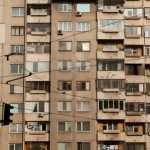In this article Dr Harriet Thomson reports back on a recent energy poverty workshop that was hosted in Brussels by the Socialists and Democrats Group in the European Parliament, and comments on the growing awareness of energy poverty shown by Parliament members. Article reposted and adapted with permission from Energy Vulnerability and Urban Transitions.
Policymakers have been discussing ‘fuel poverty’ and ‘energy poverty’ at the EU-scale since at least 2001, as outlined in an earlier blog post. Yet despite widespread acknowledgement of the issue by EU decision makers, policy responses have remained fragmented and messy, and lack both a definition of fuel or energy poverty, and criteria for an ‘affected Member State’. However, this may soon change now that European Parliament groups are showing a renewed interest in addressing fuel poverty. Read the rest of this entry »








